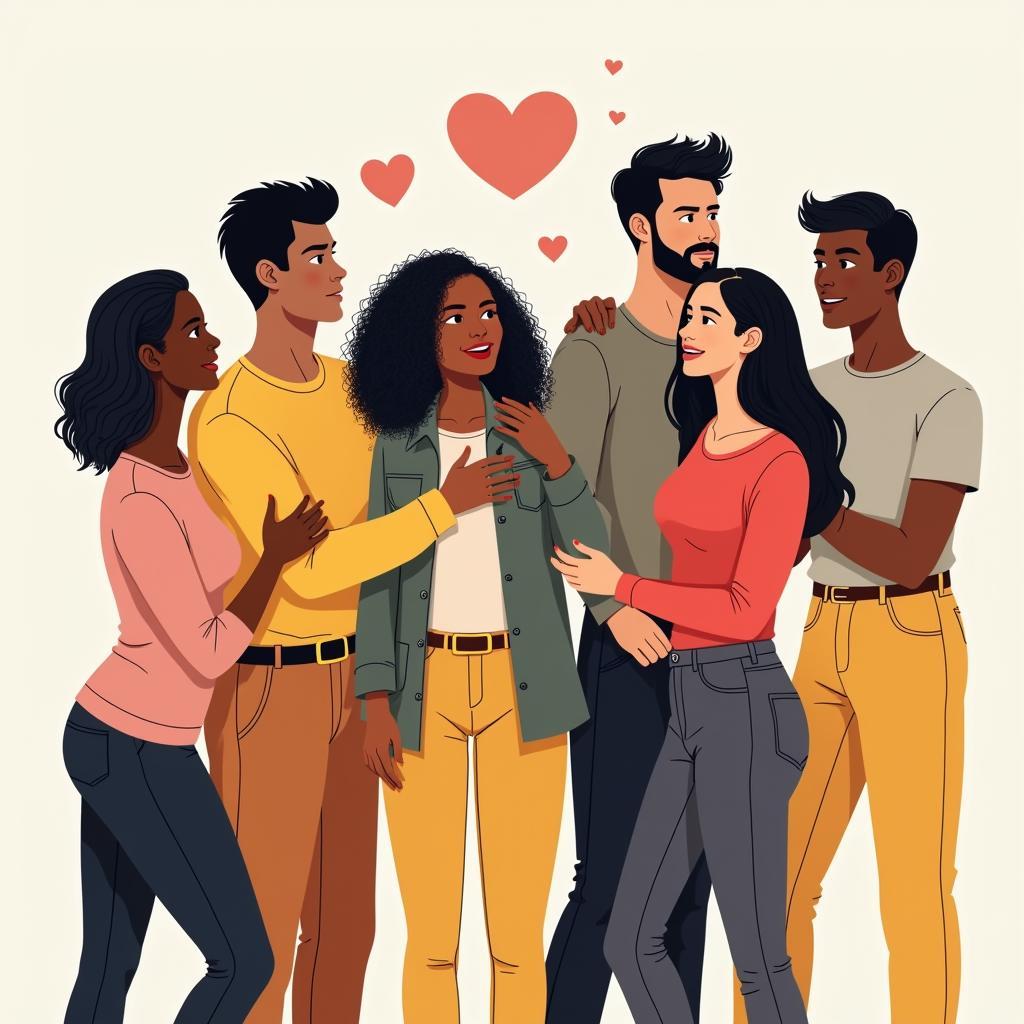The Hindi phrase “Badal Jate Hai Log,” meaning “people change,” resonates deeply with anyone who has experienced the bittersweet reality of evolving relationships. Whether it’s friendships, family bonds, or romantic partnerships, the constant is change. This article explores the multifaceted nature of this universal experience, delving into why people change, the impact of such changes, and how to navigate these shifts with grace and understanding.
Why Do People Change? Life’s Unpredictable Journey
Change is an intrinsic part of the human experience. We are not static beings; our thoughts, feelings, and priorities evolve as we journey through life. Several factors contribute to these personal transformations, including:
- Experiences: Life’s trials and triumphs shape our perspectives. Positive experiences can broaden our horizons, while negative ones can lead to caution and introspection. Sometimes, these changes align with our existing values, while at other times, they can cause a significant shift in our worldview.
- Growth and Maturity: As we age, we gain wisdom and experience that inevitably alters our priorities and values. What was once important may lose its significance, replaced by new aspirations and goals. This natural evolution can sometimes lead to divergence in relationships, particularly if individuals grow at different paces or in different directions.
- External Influences: Our environment, including the people we surround ourselves with, significantly impacts our development. New relationships, career changes, or relocation can introduce fresh perspectives and influence our beliefs, sometimes leading to changes that may strain existing connections.
- Circumstances: Unforeseen events, such as illness, loss, or financial hardship, can drastically alter a person’s personality and behavior. These experiences can test the resilience of relationships, sometimes strengthening them, and other times causing irreparable damage.
Navigating the Changing Dynamics of Relationships
Recognizing that change is inevitable is the first step towards navigating its impact on relationships. While we cannot control how others evolve, we can adapt our approach to maintain healthy connections:
- Acceptance: Accepting that people change, including ourselves, is crucial. Resisting change often leads to frustration and resentment. Instead, embracing the evolving dynamics allows for greater flexibility and understanding within relationships.
- Communication: Open and honest communication is essential. Expressing your feelings and concerns constructively can help bridge the gap caused by changing perspectives. Active listening is equally important, allowing you to understand the other person’s point of view.
- Boundaries: Establishing healthy boundaries is paramount. While compromise is vital, maintaining your own identity and values is equally crucial. Setting boundaries helps ensure that changes within the relationship do not compromise your well-being.
- Letting Go: Sometimes, despite our best efforts, relationships drift apart. Accepting that some relationships have a natural lifespan can be difficult, but it’s a crucial part of personal growth. Letting go gracefully allows both parties to move forward with respect and understanding.
“Badal Jate Hai Log”: A Universal Truth
The phrase “badal jate hai log” encapsulates a fundamental aspect of the human experience. While change can be challenging, it’s also an opportunity for growth and understanding. Embracing the fluidity of relationships and navigating them with empathy and open communication allows us to build stronger, more resilient connections. Recognizing that change is an inherent part of life, not a betrayal, can lead to deeper self-awareness and more fulfilling relationships.
How do I cope with a friend who has changed drastically?
Focus on open communication and understanding their perspective. If the changes are irreconcilable with your values, setting boundaries is essential.
Is it wrong to feel hurt when someone changes?
It’s natural to feel hurt or confused when someone you care about changes. Allow yourself to process those emotions, but remember that change is a normal part of life.
Conclusion
“Badal jate hai log,” a simple phrase, holds profound wisdom. People change, relationships evolve, and navigating these shifts is a continuous process. By embracing acceptance, fostering communication, and setting healthy boundaries, we can navigate these changes with resilience and understanding. While some relationships may not withstand the test of time, others will emerge stronger and more meaningful. Embracing the reality of change allows us to cultivate deeper connections and appreciate the evolving tapestry of human relationships.
 Embracing Change in Relationships
Embracing Change in Relationships
FAQ
- What does “badal jate hai log” mean? It means “people change.”
- Is change in relationships always negative? No, change can be positive, leading to growth and deeper understanding.
- How can I prevent people from changing? You can’t prevent change, but you can adapt and communicate.
- What if I don’t like the changes in someone? Open communication and setting boundaries are crucial.
- Is it okay to end a relationship because someone has changed? Yes, sometimes it’s necessary for personal well-being.
- How do I accept change in a loved one? Focus on understanding their perspective and adapting your communication.
- What if the changes are detrimental to the relationship? Honest communication and boundary setting are vital.
Need more support? Contact us at Contact@ViperCircle.com or visit our office at G-5, लोअर परेल, सेनापति बापट मार्ग, मुंबई, महाराष्ट्र – 400013, भारत।. We have a 24/7 customer support team.